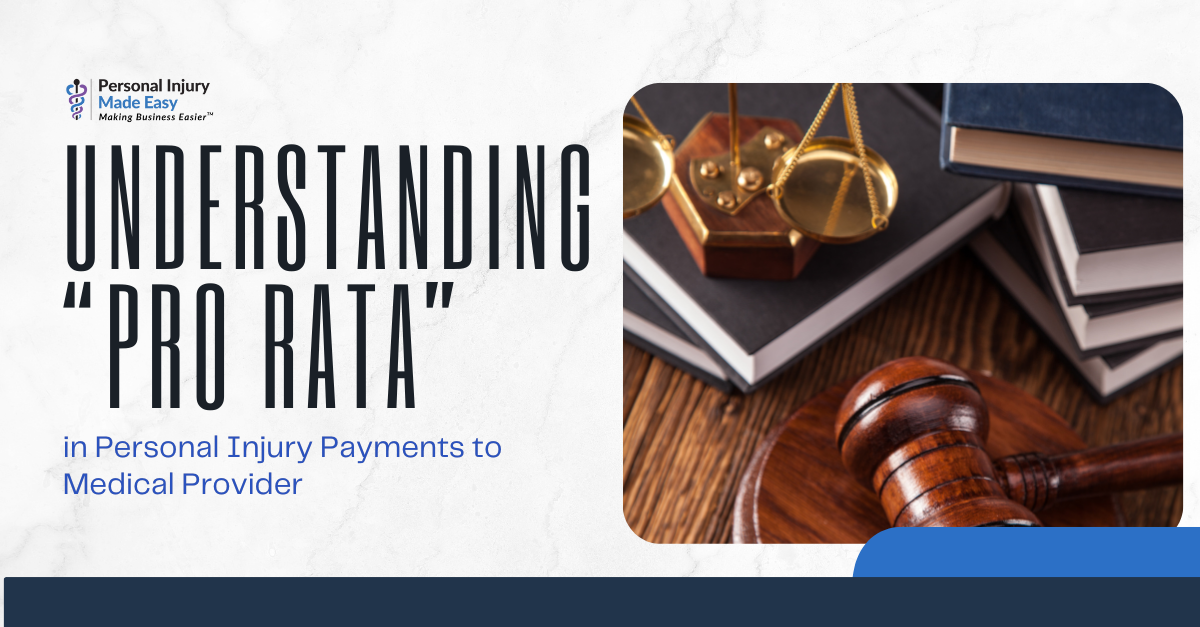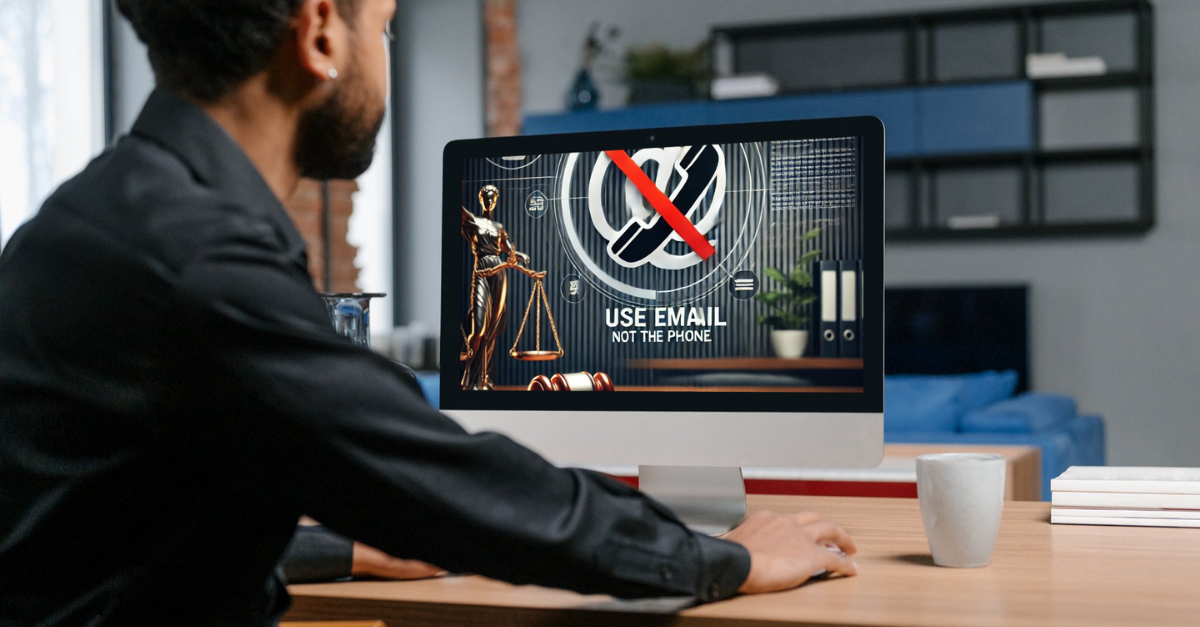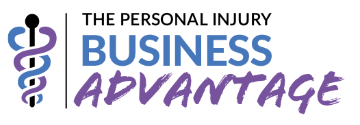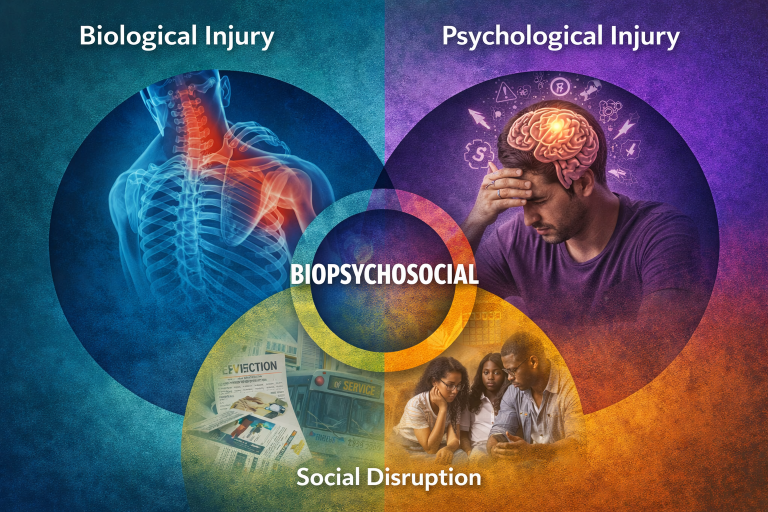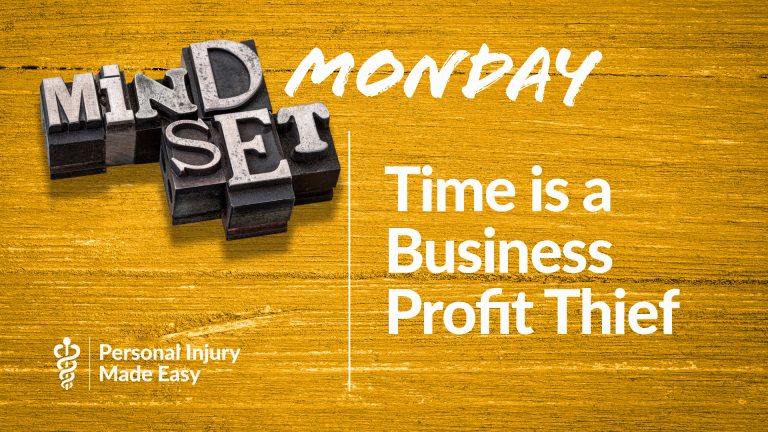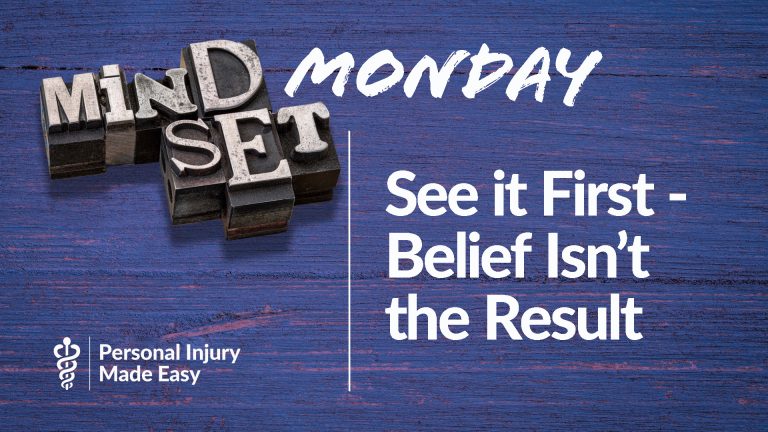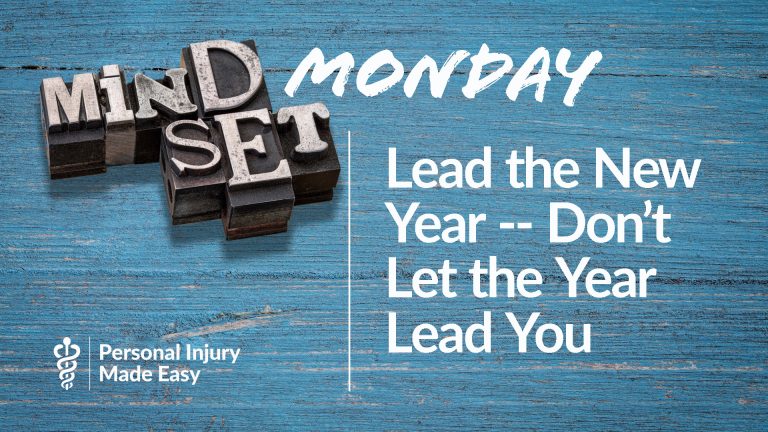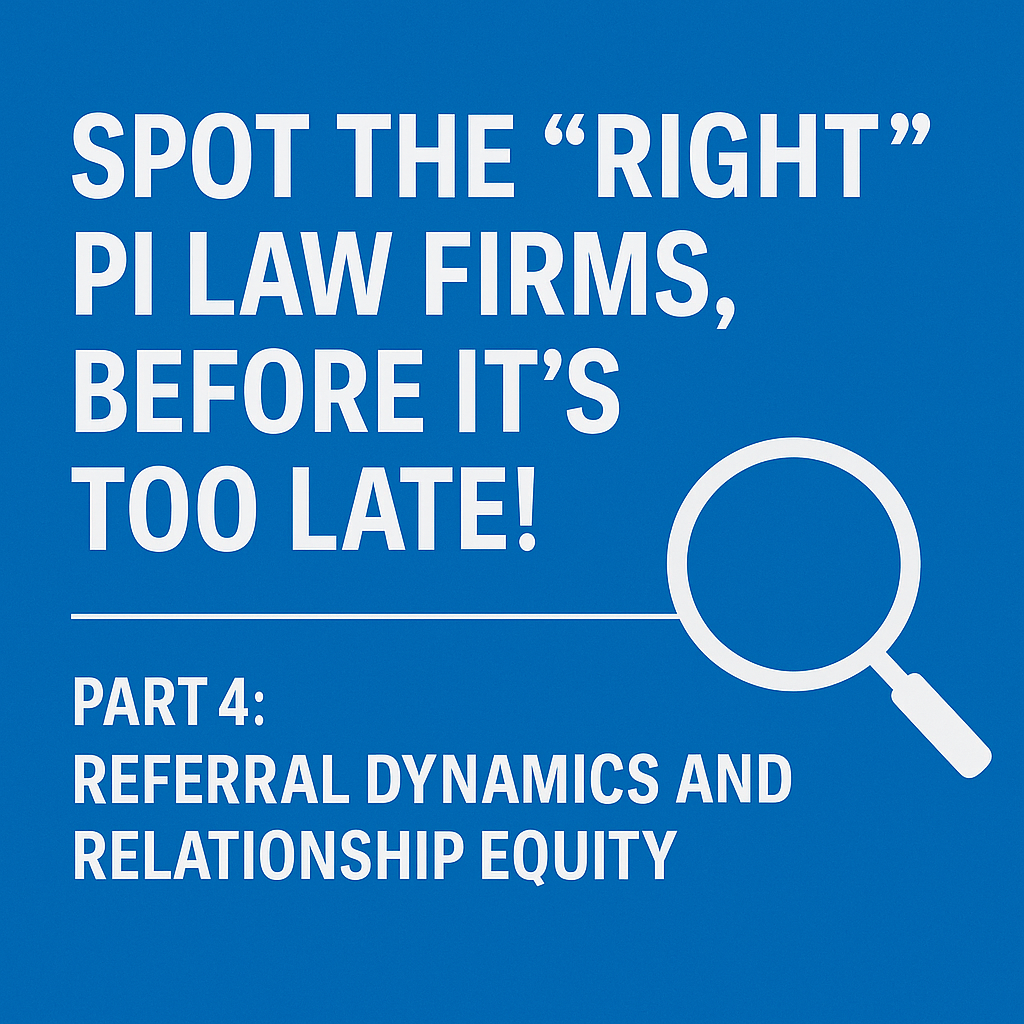
Part 4 of 6: Law Firm Dating in the PI World: One Night Stand, Abuse or a Future Together?
How to Spot Real Reciprocity, Relationship Red Flags, and True Commitment
So far in this series, we’ve done some solid vetting.
- In Part 1, we scoped the surface: evaluating law firm size, negotiation personality, and local roots.
- In Part 2, we ran background checks: inspecting websites, state bar records, and online reviews.
- In Part 3, we measured real-time behavior: tracking results and tendencies.
But now, in Part 4, we move into what feels a lot like dating.
Because as medical providers in the personal injury world, you’re not just working cases—you’re entering relationships. And whether you say it out loud or not, you’re wondering:
“Are they really into me… or just using me?”
Welcome to the world of business dating in PI—where support, consistency, and mutual effort separate a lasting relationship from a string of forgettable flings.
Here’s how to tell if your law firm “partner” is worth building with—or if they’re just not that into you.
1. Mutual Referrals – Do They Call You Back, or Just Ghost You?
Let’s be honest—any meaningful relationship involves give and take.
If you’re regularly sending solid PI patients to a firm, but never receiving any back, that’s not a partnership. That’s unrequited affection—and in business, that can be expensive.
Healthy PI relationships aren’t measured by a 1:1 referral ratio, but by clear intention and effort. Do they refer patients your way when someone needs conservative care? Do they ask where you’re located before blindly sending someone across town? Do they include you when clients ask for recommendations?
If not—why not?
Some firms claim, “We let the client choose,” but if your name never comes up, you’re not a choice—you’re an excuse.
Here’s the rule: Match energy. If they treat you like a trusted partner, give the same back. If they’re just taking and never giving, it’s time to DTR—define the relationship—and decide if it’s worth your time.
2. Relationship Managers – Who’s Your Contact When the Honeymoon’s Over?
In dating, when it’s real, you meet the people who matter. They introduce you to their circle. There’s follow-up. There’s care.
Same goes in PI.
When a law firm cares about its provider relationships, they usually have someone assigned—a liaison, coordinator, or relationship manager. Someone whose job is to nurture the connection, answer your questions, and keep communication flowing.
If that person is responsive, proactive, and resourceful, it’s a green flag. It means the firm views you not as a bill to haggle over later, but as a partner in the patient’s recovery journey.
But if no one knows who handles provider relationships—or you keep getting bounced from person to person—that’s the equivalent of communicating and then, after the third date you see they read your text but get no reply.
No effort. No clarity. No future.
3. Community Visibility – Are They in It for the Long Haul, or Just Playing the Field?
If a firm truly values the relationship, they’ll show up in your world, not just when they need something.
Do they attend local events? Sponsor health fairs? Support community initiatives? Speak at seminars? These acts show they’re not just lead-chasing—they’re invested in the ecosystem that includes you.
Relationships grow when you move in the same spaces. If you’re out there representing your profession, and the law firm is always invisible—never supporting, never showing up—it’s a signal.
They may be too busy for commitment. Or worse—they’re only around when it benefits them.
Don’t date someone who’s only in it for what you can offer behind closed doors.
Conclusion to Part 4: It’s About Equity, Not Entitlement
In both business and romance, no one likes someone who keeps score.
But everyone deserves someone who puts in the effort.
If you’re giving your time, attention, and trust to a law firm—they should be pouring something back into your practice. It’s not entitlement.
It’s equity.
So, ask yourself:
- Are you in a relationship where both sides invest in each other?
- Or are you pouring into an empty cup and calling it partnership?
Because when you know your worth, you don’t chase.
You align.



